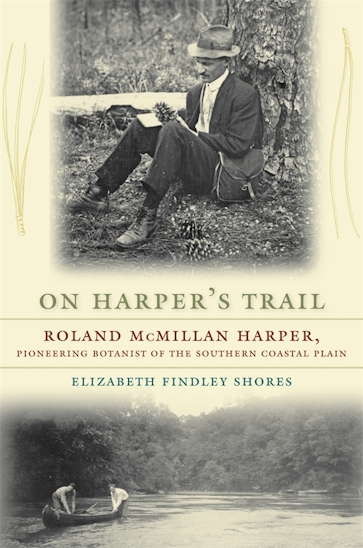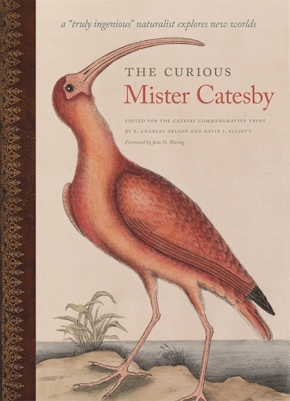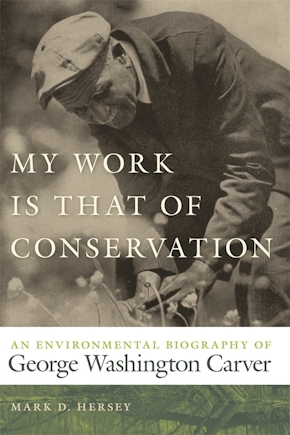On Harper's Trail
Roland McMillan Harper, Pioneering Botanist of the Southern Coastal Plain
Title Details
Pages: 296
Illustrations: 20 b&w photos and 1 illus.
Trim size: 6.000in x 9.000in
Formats
Paperback
Pub Date: 04/01/2010
ISBN: 9-780-8203-3522-3
List Price: $34.95
Related Subjects
On Harper's Trail
Roland McMillan Harper, Pioneering Botanist of the Southern Coastal Plain
Skip to
- Description
- Reviews
- Awards
Roland McMillan Harper (1878-1966) had perhaps "the greatest store of field experience of any living botanist of the Southeast," according to Bassett Maguire, the renowned plant scientist of the New York Botanical Garden. However, Harper's scientific contributions, including his pioneering work on the ecological importance of wetlands and fire, were buried for decades in the enormous collection of photographs and documents he left. In addition, Harper's reputation as a scientist has often been obscured by his reputation as an eccentric. With this book, Elizabeth Findley Shores provides the first full-length biography of the accomplished botanist, documentary photographer, and explorer of the southern coastal plain's wilderness areas.
Incorporating a wealth of detail about Harper's interests, accomplishments, and influences, Shores follows his entire scientific career, which was anchored by a thirty-five-year stint with the Alabama Geological Survey. Shores looks at Harper's collaboration with his brother Francis, as they traced William Bartram's route through Alabama and the Florida panhandle and as Francis edited the Naturalist Edition of The Travels of William Bartram. She reveals Roland's acquaintance with some of the most important, and sometimes controversial, scientists of his day, including Nathaniel Britton, Hugo de Vries, and Charles Davenport. Shores also explores Harper's personal relationships and the cluster of personality traits that sparked his interest in genetic predestination and other concepts of the eugenics movement.
Roland Harper described dozens of plant species and varieties, published hundreds of scientific papers, and made notable contributions to geography and geology. In addition to explaining Harper's eminence among southeastern naturalists, this story spans fundamental shifts in the biological sciences-from an emphasis on field observation to a new focus on life at the molecular level, and from the dawn of evolutionary theory to the modern synthesis to sociobiology.
The scholarship shown by Shores is quite impressive. She properly places Harper within the history of ecology. Harper was an initiator and a maverick, an innovator and a dinosaur. These aspects of his personality and importance certainly shine through in Shores's biography.
—L. J. Davenport, Professor of Biology, Samford University
Although often overlooked, Roland Harper was a significant botanist, and this biography brings him the attention he deserves. In this thoroughly researched study, Shores makes an important contribution, illuminating much about botany in the Southeast, ecology, eugenics, and the history of Georgia, Alabama, and Florida. This book should appeal to botanists, historians of science, and many general readers.
—Lester D. Stephens, Professor Emeritus of History, University of Georgia
A rollicking biography of the seminal botanist . . . Shores' biography of the outspoken, peripatetic Harper is an excellent companion volume for touring the gardens of Alabama and Florida, where he did his greatest work. He may have been a Yankee, but his love and understanding of the South knew no bounds.
—Garden and Gun
A loving but tough assessment of Harper's life
—Journal of Southern History
Shores has done a masterful job of bringing together this enigmatic man's disparate traits to present the life of an accomplished but troubled individual whose contributions to science are only today becoming fully recognized. On Harper's Trail is an engaging and well-documented work covering an important chapter in Alabama natural and cultural history. Readers interested in botany, history, or psychology, as well as anyone who likes a real-life mystery, will savor it . . . Today more than ever, Harper's words resonate for those concerned about the future of our natural landscapes, including the longleaf pine forests of the Southern Coastal Plain.
—Alabama Review
Runner-up
Phillip D. Reed Memorial Award, Southern Environmental Law Center



